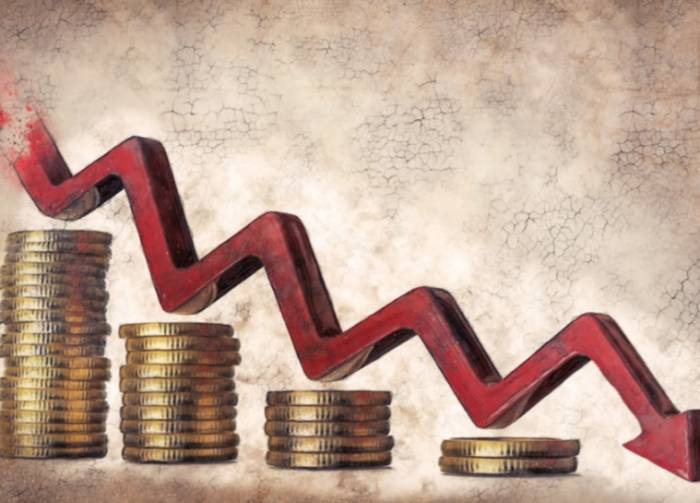During the holiday period, I didn't travel far but drove around the local area and refilled my car's fuel twice. I really felt the recent surge in fuel prices, as the price of 92-octane gasoline in Shanghai reached 8.4 yuan per liter. While refueling, I was secretly relieved that my car didn't require 95-octane fuel, otherwise, the expense would have been even greater.
On October 10th, a new round of refined oil price adjustments is expected. Will the oil prices, after six consecutive increases, start to decline? In theory, it is possible because international crude oil prices have dropped significantly during the holiday period, and China's refined oil prices are pegged to international oil prices.
However, there is often a gap between reality and theory. Unfortunately, I have to inform everyone that it is highly likely that oil prices will still rise on October 10th, although the increase will not be significant.
Why do domestic refined oil prices continue to rise even when international oil prices fall? Is it really true, as some people say, that domestic oil prices follow the rise when international crude oil prices increase, but remain unchanged or still rise when international oil prices fall? Some netizens even claim that compared to the same period last year, international oil prices have fallen by 26%, while domestic refined oil prices have risen against the trend by 20%.
In September 2022, the price of Brent crude oil futures fluctuated between $82.5 per barrel and $97 per barrel, with an average of $89.75; in September 2023, the highest price of Brent crude oil futures reached $95.4 per barrel, with the lowest at $86.7 per barrel, averaging $91.05. It can be seen that the international oil prices in September this year are not much different from the same period last year, and have even slightly increased, so there is no so-called significant drop of 26%.
On the other hand, on September 21st, the domestic gasoline price was 9,735 yuan per ton, and the diesel price was 8,670 yuan per ton; I checked the oil price data from last September, with gasoline at 9,435 yuan per ton and diesel at 8,380 yuan per ton. This means that the gasoline price in late September this year was 3.18% higher than in September last year, and the diesel price was 3.46% higher, which is roughly the same as the year-on-year increase in international oil prices, and there was no 20% increase.
Seeing is believing, and below is a chart showing the domestic refined oil price situation for this year and last year.
Therefore, generally speaking, domestic refined oil prices rise and fall in line with international oil prices.
Some friends may be more confused. Since we have concluded that domestic oil prices follow the rise and fall of international oil prices, then why did I say at the beginning that the domestic refined oil prices on October 10th will not be reduced, but will rise instead? It is important to note that international oil prices have been falling for several days, with Brent crude oil futures, for example, reaching a high of $95.35 per barrel on September 28th, and closing at $84.43 per barrel on October 6th, a decrease of 11.45%. There are two main reasons for this.Firstly, the reference oil price is based on a two-week weighted average, not the price of a few days.
Generally speaking, domestic refined oil prices are adjusted every two weeks, referring to the weighted average of international oil prices over the most recent 14 days. This could result in a situation where the price is high at the beginning of the period and then gradually falls, leading to an average price for the current period that does not change significantly compared to the previous period.
The current calculation period started on September 21st. I observed the Brent crude oil futures price trend, which was above $90 for the 12 days from that date to October 3rd, reaching a peak of $95.35 on September 28th. The weighted average price was higher than the previous period (September 7th to September 20th).
Secondly, it is impossible to fully benefit from the decline in international oil prices.
On October 4th, the Brent crude oil futures price plummeted by 5.31% in a single day, and on October 5th, it fell sharply by nearly 2%, dropping the price below $85 per barrel. However, it is already very close to the domestic oil price adjustment window for this round. October 7th and 8th are weekends (after domestic leave adjustment), and the international crude oil market is closed. On October 9th, the market opens for one day before the new round of price adjustment window on October 10th. Even if international oil prices continue to decline afterward, they cannot be included in the scope of this round's price adjustment window.
The good news is that when the next oil price adjustment comes (October 24th), domestic refined oil prices are likely to see the first decrease after seven consecutive increases (including the increase on October 10th). Of course, it is not possible to drop significantly all at once. The price of 92 octane gasoline will still be above 8 yuan, and 95 octane gasoline will remain above 8.5 yuan.
When can domestic oil prices see a larger decrease? It still depends on international crude oil prices. If international oil prices fall to above $70, then 92 octane gasoline will not only break through 8 yuan but may cost less than 7 yuan per liter. The main factors determining the rise and fall of international oil prices are the game between the United States and the two big brothers of the OPEC+ organization, Russia and Saudi Arabia.
The current inflation level in the United States is still not low, and the reason is related to the rise in oil prices. The United States is the country that consumes the most oil globally, and the price of oil determines the level of prices. Suppressing oil prices is something the United States loves to do.
The attitudes of Russia and Saudi Arabia are different. Crude oil is the most important "money-making" commodity for these two countries. The higher the oil price, the more they earn, especially for Russia, where high oil prices are more important. War costs money, and the Russian government is very short of money. Selling more crude oil and at higher prices can greatly alleviate Russia's financial tension.
Since the beginning of this year, Russia and Saudi Arabia have announced multiple times to reduce crude oil production, hoping to raise international crude oil prices by reducing the supply. The international oil price has risen from more than $70 per barrel in July to more than $95, which should be "attributed to" the production reduction of Russia and Saudi Arabia. Now that crude oil prices have fallen, the two countries have started to reduce production again. In September, Saudi Arabia announced that it would extend the measure of reducing 1 million barrels of oil per day until the end of this year, and Russia voluntarily reduced production by another 300,000 barrels.If international oil prices continue to fall, the two major oil producers may continue to send signals of production cuts until the oil price rises to their desired level. Oil-importing countries are suppressing oil prices through interest rate hikes and other means, while oil-producing countries announce production cuts to raise oil prices. Both sides are unwilling to give in for their own interests. What kind of mentality do we, as onlookers, have?
From a national perspective, we hope that inflation in the United States does not decrease too quickly. The more severe the internal problems in the U.S., the less energy they have to suppress China's development. However, the domestic refined oil prices in our country are closely related to international oil prices. If they rise, it will greatly increase the cost of travel. Even if you don't drive, you will be affected to some extent by the rise in taxi prices.
If a policy is adopted where the two major oil companies subsidize the price difference when the oil price rises to a certain level, then everyone should not feel much about the rise in international oil prices. At present, it seems that the U.S. is in distress, which is beneficial and harmless to us.






























Comments
Join the discussion